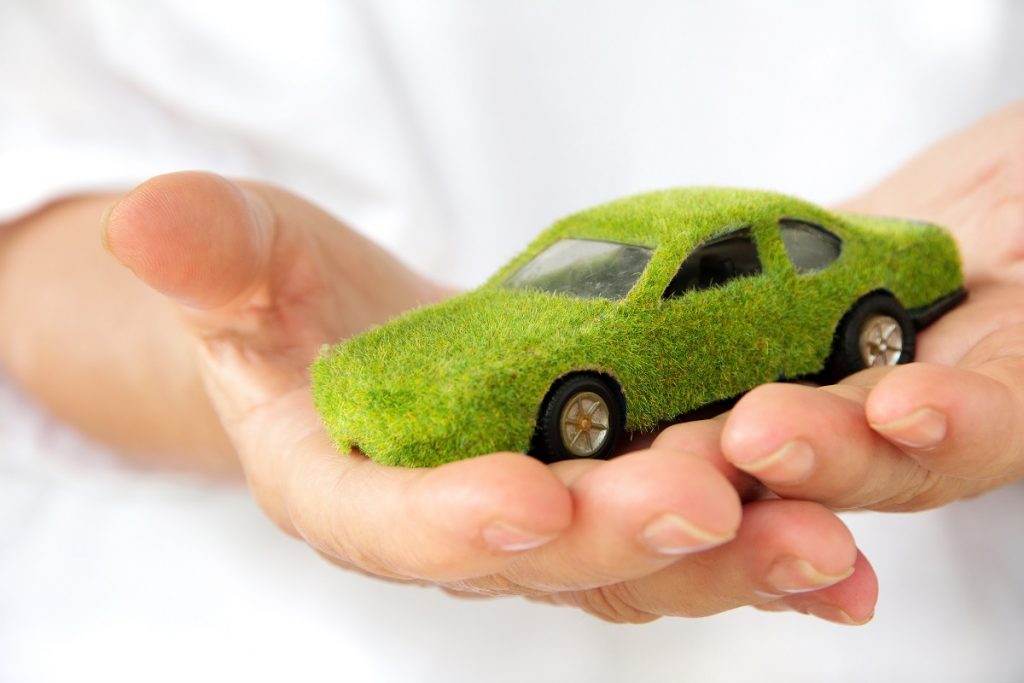Experts say 2020 is a crucial year for the future of our planet. This year alone, we have seen wildfires ravage the West Coast in unprecedented ways, a study predicted that summer sea ice could disappear entirely by 2035. The United Nations reported that even though CO2 emissions plummeted due to the intermittent lockdowns worldwide, COVID-19 has done little to slow down climate change and its effects. The facts speak for themselves: Even if we stopped emitting greenhouse gases today, we could only slow down global warming for a little. We have reached the point of no return. Scientists say climate change can no longer be stopped, but it can be slowed.
While slowing down the effects of climate change will take action globally, individuals can still come together to reduce our carbon footprint collectively. We still have a long way to go, but if we do our part and work together, we can have a positive and lasting effect on our atmosphere.
Fortunately, we now live in the age of green tech. Thanks to environmental technology, we now have several environmentally-friendly alternatives to live a sustainable lifestyle. One significant way to help the planet is by switching to eco-friendly cars. Here are five benefits to hybrid vehicles and how they switching to them can help the planet.
Eco-friendly cars are generally safer.
Even your car accident lawyer will tell you that driving is primarily a privilege, not a right. It is every driver’s responsibility to take every possible safety precaution to avoid accidents or injuries on the road. At the same time, every vehicle on the road must pass numerous tests and basic industry and legal requirements.
While all vehicles that make it on the road must pass the safety requirements, a research conducted by the Highway Loss Data Institute found that passengers in a hybrid are 25% less likely to be injured than passengers in the same model that’s conventionally-powered. The death rate for hybrid drivers is much lower, too. The reason for this is that hybrids are 10% heavier than models with standard engines, and the extra mass gives hybrids an advantage in the case of crashes.
Eco-friendly cars are more cost-efficient.
There is so much benefit to choosing a vehicle based on environmental and political reasons. For one, those who go the conscious consumerism route may find themselves saving more money in the long run. Eco-friendly cars can help drivers save so much on fuel costs. The United States Energy Information Administration released a study on how much, on average, a resident in every state spends on gas annually. In states where driving is much more prevalent, residents pay an upwards of $1,000 every year for gas. Switching to hybrid cars can significantly lower your gas expenses, or in the case of electric vehicles, eliminate them.
Eco-friendly cars emit much less carbon dioxide and other harmful chemicals.

Automobiles leave a massive carbon footprint. The Union of Concerned Scientists reported in 2014 that collectively, cars account for nearly 20% of all United States emissions, emanating about more than 20 pounds of carbon dioxide and other global-warming gases per gallon of gas.
When we use less fuel or no fuel for our vehicles, we are helping save the planet by reducing the pollutants entering the atmosphere. Fuel-efficient cars use much less fuel to travel the same distance, and opting for them generates fewer emissions and lowers our carbon footprint significantly. It allows us to breathe cleaner air, too.
Eco-friendly cars allow us to depend less on foreign oil.
The doomsday scenario of the world possibly running out of oil has been a point of discussion for pundits and analysts for decades now. Cutting down on our oil usage makes us less dependent on crude oil, the price of which is extremely volatile and can rise and fall based on the state of the global economy. Depending less on foreign oil helps protect our national security and economy.
Thankfully, technology in the energy industry is continuously advancing. The United States Department of Energy and the Energy Information Administration reported together that we are on our way to lessen our reliance on foreign oil, thanks to a general transition to other energy sources, like biofuels. The hope is that by 2035, the U.S. will have reduced oil importation by about 36 percent.
The Car of the Future
We need to reject the idea that our personal lifestyle choices will not benefit society on a global scale. If we all make these choices together and kindly educate one another, our eco-conscious choices can collectively help save the planet.

